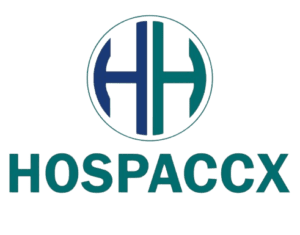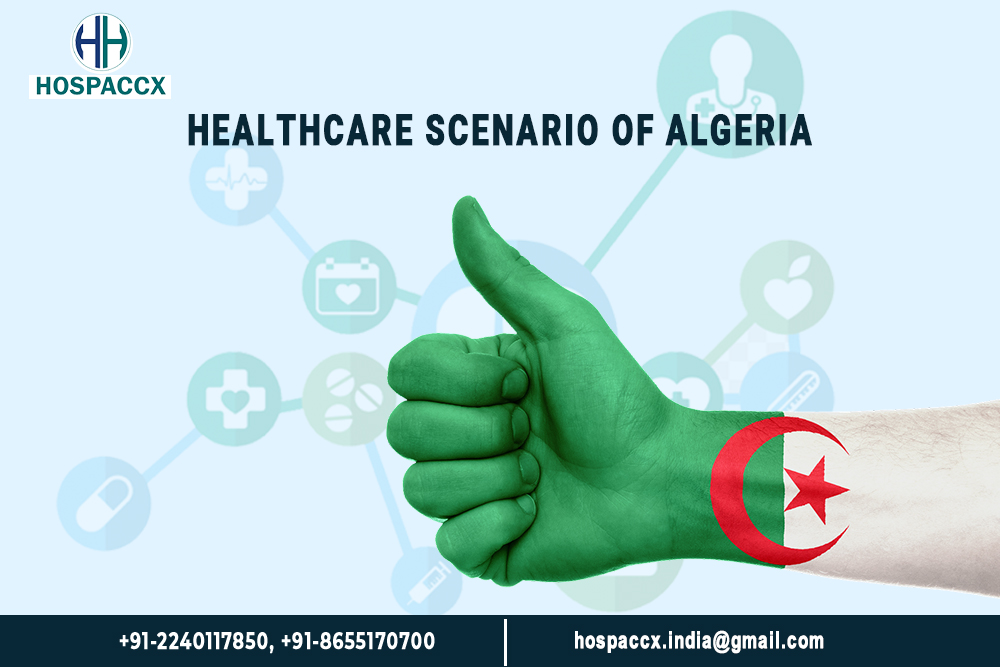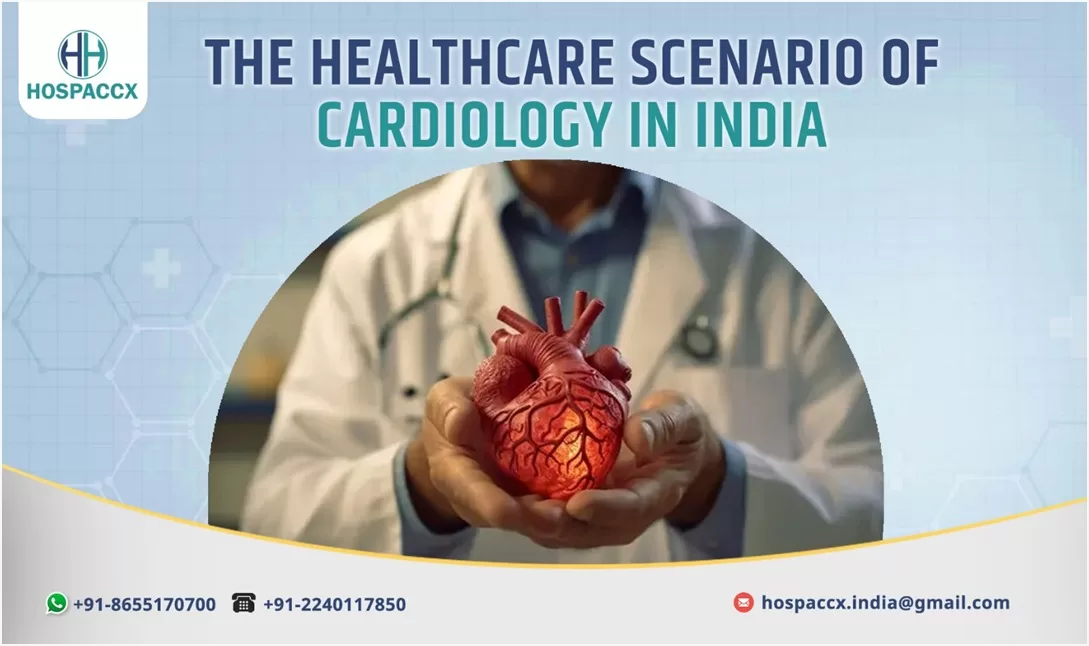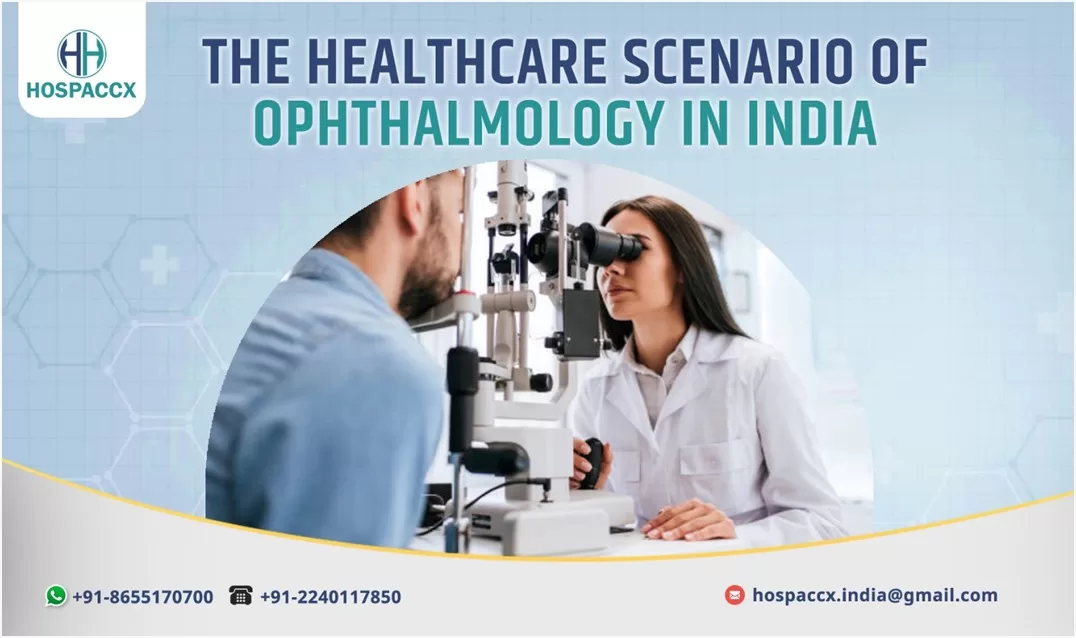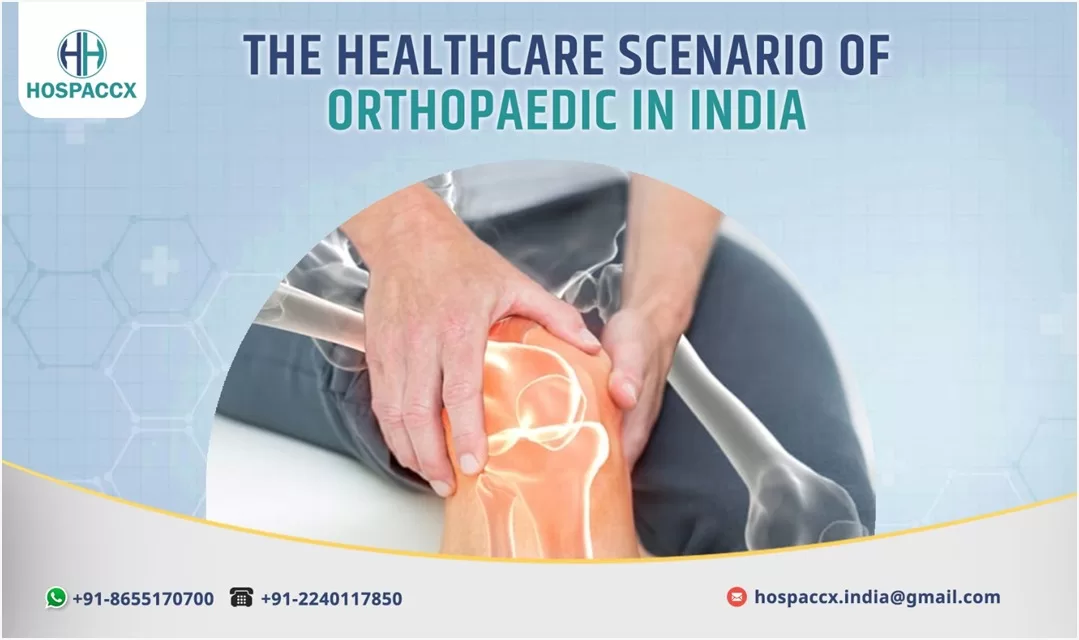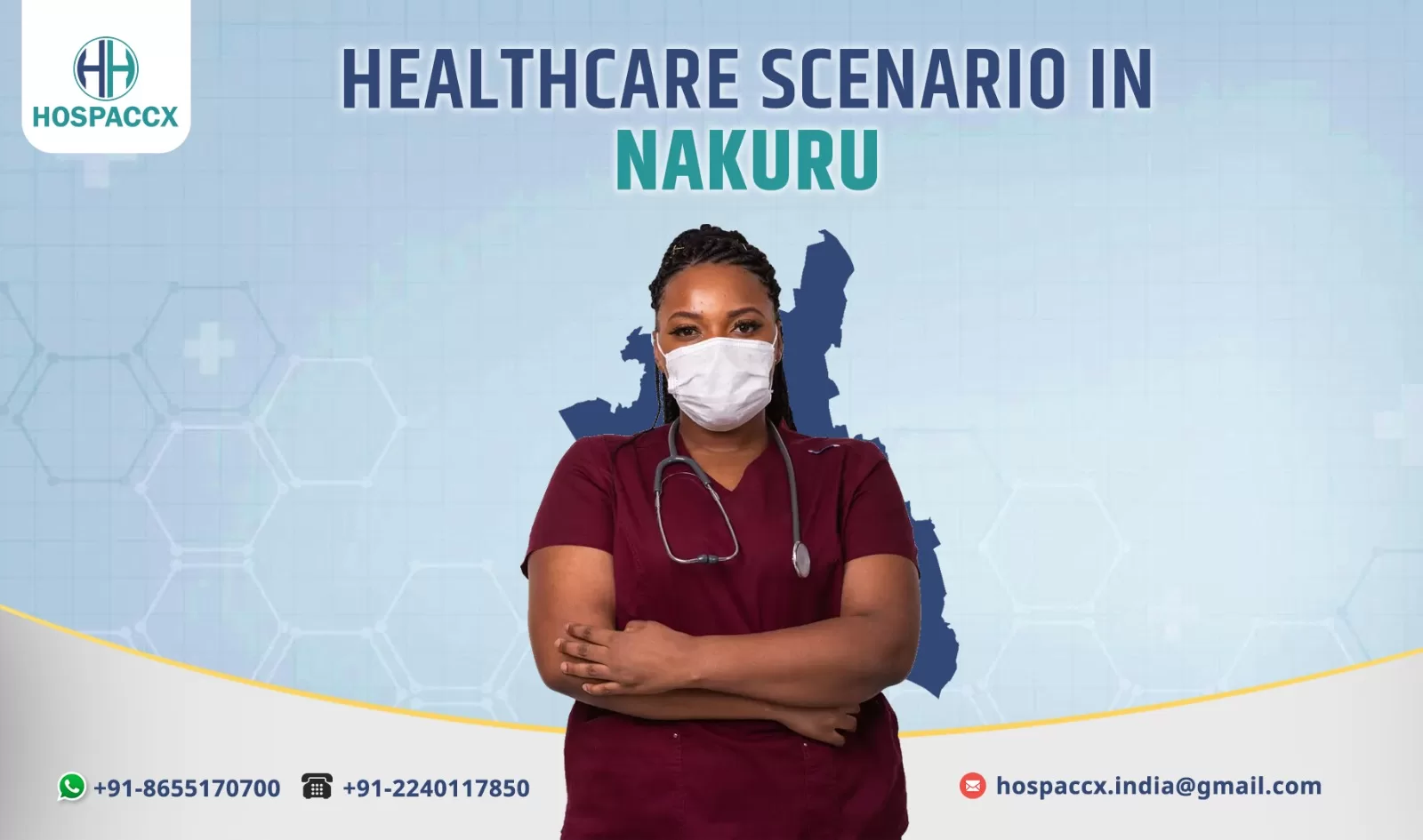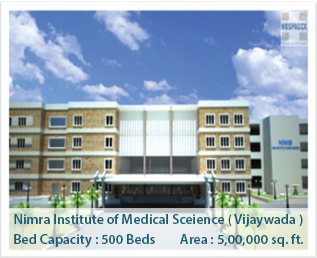Healthcare Architecture Firm Algeria
OVERVIEW OF THE COUNTRY
Algeria is located in the western region of North Africa. Mali, Mauritania, and Western Sahara border this nation to the southwest; Tunisia, Libya, and Niger border it to the east; Morocco borders it to the west; and the Mediterranean Sea borders it to the north. Algeria is the largest country in Africa and ranks tenth in the world, measuring 23 lakh sq. km. The capital of Algeria is Algiers, located in the north on the Mediterranean coast. Algeria being a predominantly Islamic country, Modern Arabic and Berber are the official languages spoken in the country. Tamazight (one of the Berber languages) is the national language of Algeria.
POPULATION
As of 2022, Algeria is the ninth-most populous country in Africa, with a population of 45 million and the 34th-most populous country in the world. Since the territory is predominantly desert, most of the population lives in the coastal areas by the Mediterranean Sea. Thus, the population density remains relatively low at around 17.7 inhabitants per sq. km. In addition, due to internal migration from rural areas, as well as population growth, Algerian cities are becoming more populous and the urbanization rate in the country is increasing annually. As of 2019, around 73 % of the population lived in urban areas.
SEX RATIO
As of 2022, there are 102.11 men for every 100 women in Algeria. In Algeria, there are 22.54 million men and 22.07 million women. The percentage of female population is 49.48% compared to 50.52% male population. Algeria has 0.47 million more males than females. Algeria is at 162nd position out of 201 countries/territories in terms of female to male ratio.
LIFE EXPECTANCY
In 2020, life expectancy at birth in Algeria stood at 78.1 years for the female population and 74.5 years for the male population. As of 2022, the life expectancy in Algeria is being estimated to 74.5 years (72.8 years among men and 76.3 years among women).
HEALTHCARE SYSTEM OF ALGERIA
PUBLIC HEALTHCARE SYSTEM
Before independence, Algeria’s health care system was extremely underdeveloped, with one doctor for every 33,000 people, an estimated 300 doctors overall, and one certified paramedic for every 40,000 people. But the nation’s health care regulations and institutions have seen significant change and advancement throughout the years. The Algerian government established a free national health care system in 1975, making hospitalization, drugs, and outpatient care available to all Algerian people. 90% of the population is covered by the national medical insurance program. Instead of funding pricey hospitals, the Algerian government chose to invest in large, publicly funded health care facilities and clinics. Remote communities receive only basic medical care.
The portion of the overall national operating budget devoted to health reached 7.3% in 2018 despite the government’s difficult financial circumstances. The fourth-largest share of the national government budget goes to the Algerian Ministry of Health, Population, and Hospital Reform. The Algerian government has created 58,000 positions for nurses, physicians, and medical assistants as part of its investment in human resources.
Currently, Algeria’s health system has improved health indicators as a result of a growing portion of the state budget—5.2 % of GDP—being allocated to the health sector. However, Algeria has a number of issues with other middle-income nations, such as escalating healthcare access disparities and rising economic and social vulnerabilities.
The Algerian healthcare system consisted in 2018 of the following, according to Mohamed L’Hadj, Director General of the Ministry of Health, Population and Hospital Reform:
- 16 university hospitals
- 297 public hospitals
- 273 local healthcare institutions
- 1708 polyclinics
- 6226 healthcare centres.
- 575 private institutions, of which 206 were clinics and hospitals, and 369 diagnosis centres.
Algeria had in total 23,000 private offices, 9,751 specialised and 7,298 general practices, as well as 6,514 dental practices. Thus, a total of over 2.4 lakh healthcare professionals in the public sector alone.
PRIVATE HEALTH SYSTEM
Algeria is seeing an increase in the use of private healthcare institutions. The private healthcare system in Algeria is expensive, but these high costs enable the administration to maintain higher standards of healthcare than those of public healthcare, as well as better quality equipment. However, since few Algerians can afford the out-of-pocket costs associated with receiving healthcare in the private healthcare sector, access to private medical care is still quite limited. The Ministry of Health, Population, and Hospital Reform (Ministère de la Santé, de la Population et de la Réforme Hospitalière, MSPRH) approved the construction of Algeria’s first private hospital in the province of Blida, in 2014. Private health care providers in Algeria are free to set their own fee schedules.
About 250 private clinics existed in 2015, and hundreds more offered medical services, including diagnostics. The government’s decision about whether or not private clinic expansion and specialization should be supported by social security will have an impact in the future. The number of private service providers has increased in several regions, such as maternity clinics and hemodialysis facilities. In response to rising demand and shortcomings in the public sector, the private sector is investing in healthcare.
The private health care sector is growing much faster now than 10 years ago. Much of the increased activity is coming through the expansion of convention agreements with public facilities – whereby patients are transferred from public hospitals to private facilities for additional care – which is an area the government is trying to bolster. It aims to improving service provision overall, since growth in the private sector helps to develop treatments and services that can then trickle down to the public sector.
BEST HEALTH CLINICS IN ALGERIA
- Clinique Chahrazed
Clinique chahrazed is located in Chéraga. It was established in 2003, with 60 beds capacity, providing medical-surgical and cardiology services.
- Clinique Diar Saada
Clinique Diar Saada is a 40 bedded clinic, that provides cardiology and Ophthalmology care services. It is located in El Mouradia, a part of the capital city of Algiers.
- Clinique Diascan
Clinique Diascan, located in Staouali is also being rated as one of the best health clinics.
BEST PUBLIC HOSPITALS IN ALGERIA
- Mustapha University Hospital
- Hospital Birtraria
- Central University Hospital Abdelhamid Ben Badis
KEY HEALTHCARE INDICATORS
Total fertility rate– The current fertility rate for Algeria in 2022 is 2.841 births per woman, a 1.8% decline from 2021.
Doctor to population– The doctor-to-population ratio is 1 doctor for every 300 persons. The number of persons per professional continues to be about 1,000 at the nation’s public hospitals and healthcare institutions, where there are about 40,000 doctors.
Bed to population– According to recent data, there are 19 beds per 10,000 people in Algeria.
Infant mortality rate– In 2022, Algeria’s infant mortality rate will be 18.969 per 1000 live births, a 2.91 percent decline from 2021.
HEALTH EXPENDITURE
Despite the government’s challenging fiscal situation, the share of the total national operating budget allocated to health reached 7.3% in 2018. The Algerian Ministry of Health, Population and Hospital Reform is awarded the fourth largest portion of the national government budget. The 2018 finance law outlined a health budget of DZD 392,16bn ($3.27bn). This was increased to DZD 398,97bn ($3.33bn) in the 2019 finance law.
The population has continued to receive benefits from the free public healthcare and social security programme thanks to the government’s allocation of US $ 28 billion during the last ten years, including US $ 3 billion in the 2020 state budget.
Algeria’s public health system offers near-universal coverage free at the point of delivery. Out-of-pocket payments account for just 20.9% of total health spending, according to the Mediterranean World Economic Foresight Institute.
HEALTH INSURANCE SECTOR
National Health Insurance
In Algeria, residents are either covered by the Caisse Nationale de la Securite Sociale des Travailleurs Salaries (CNAS), which provides coverage for salaried employees and their dependents, or by a different program that provides coverage for independent contractors and their dependents. Both funds provide for medical care coverage delivered in state-run hospitals or through the transfer abroad program, while CNAS and private treatment facilities may occasionally engage in insurance contracts.
Private health insurance
In Algeria, there is currently no private health insurance programme. Before entering the nation, expats are advised to make plans for foreign health insurance to avoid out-of-pocket payments costs, especially if they will be stationed in a remote area. It is important to note a medical evacuation to the expat’s home country or one with better medical facilities must be covered by the health insurance policy.
PHARMACEUTICAL SECTOR
Algeria is the second-largest pharmaceuticals market on the continent after South Africa, with annual sales expected to reach close to $4bn in 2015. Demand for medication is increasing at double-digit rates, driven by various factors. One of the biggest contributors to rising sales is Algeria’s changing demographics, characterized by rising numbers of adolescents and the elderly. Algeria’s age dependency ratio stood at 52% in 2014, according to World Bank data. The rising prevalence of NCDs also require more complex and costly treatments.
According to WHO/EMRO, less than half of the Middle East and North Africa (MENA) nations have national drug policies in place or are actively implementing them, while less than one-third of the population gets regular access to necessary medications. Despite the availability of necessary drug lists and an abundance of treatment guidelines, irrational drug prescription and self-medication remain significant difficulties in the region due to the lack of effective pharmaceutical rules. Increasing the efficiency and regulation of national procurement processes can also help governments spend less on pharmaceuticals.
MEDICAL EQUIPMENTS & TECHNOLOGY
Large-scale expenditures in health care infrastructure, such as new hospitals and clinics, as well as equipment and ambulances, are assisting in extending access for a wider population, although issues with personnel still exist. The shortages go beyond employees, as many healthcare facilities also struggle to get or maintain the most recent and cutting-edge equipment. The size of the medical facilities and equipment vary according to the size of the local
The availability of specialist treatment will be improved by new facilities like CACs, although there is a scarcity of equipment in present facilities. To address this, Algeria formed partnerships with US-based Varian Medical Systems and Sweden’s Elekta, two of the world’s largest producers of linear accelerators, the main equipment used in radiation, in September 2013. The contracts guarantee the provision of equipment, together with maintenance and staff training aimed at enhancing equipment performance over time.
CHALLENGES FACED IN THE ALGERIAN HEALTHCARE SYSTEM
- Health Transition-Related Challenges
- Impact of increasing population needs:
- Availability of Limited Resources for Advancement:-
- Uncertainty in the Impact of new Diseases
- Health Systems-Related Challenges
- Adaptation to ever-changing practices and policies in Healthcare
- Compliance to the standards of Healthcare Service
- Inefficiencies in Manpower Management
- Adaptation to the digitalization of Healthcare Management Systems
- Difficulty in Access & Availability of upgraded Biomedical Technology
- Unaffordable expenses by consumers
- Changes for better Governance
CONCLUSION
Algeria, though country with many opportunities for advancements, progress for sustained achievements of the national health systems can become even more challenging within the context of a growing population, especially one with a high economic dependency rate. Governments can also take better advantage of the growing private health sector by fully regulating them and ensuring that private along with public investments are made in more cost-effective technologies. The region clearly faces a multitude of challenges at various levels and scope, with some easier to address than others. To effectively and efficiently respond to these challenges, government must also have the political will to involve key stakeholders in the planning, implementation, and management of health systems. The beauty of globalization is that such regions and countries can benefit from others and share their experiences and ideas in tackling these challenges together.
For more information about the Country and Healthcare opportunities in Algeria, you can visit the company website on www.hospaccxconsulting.com or contact us directly.
